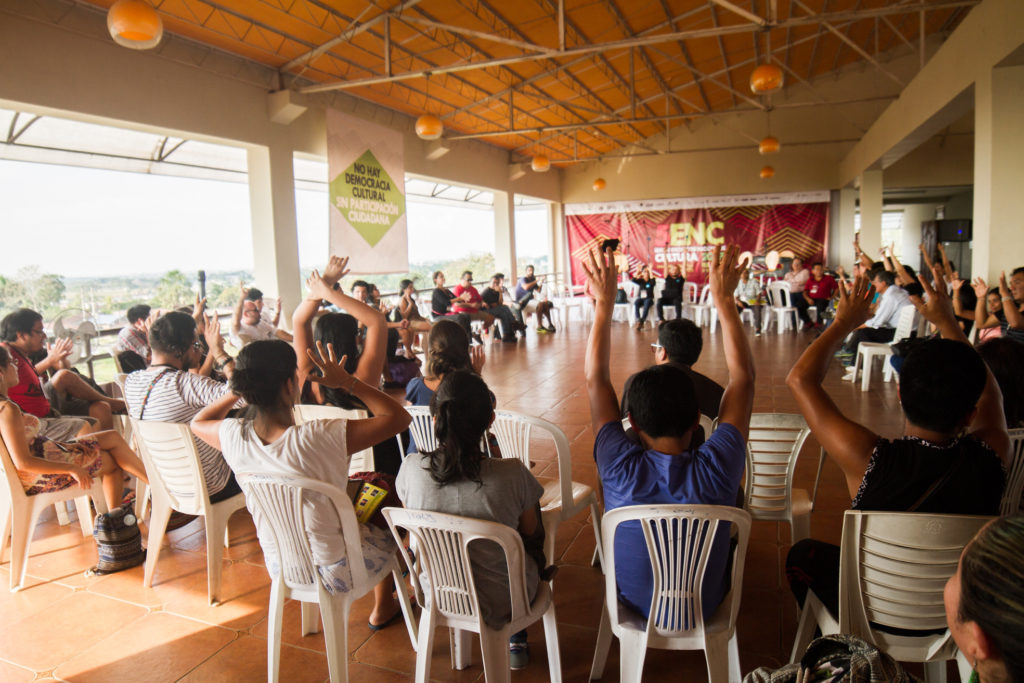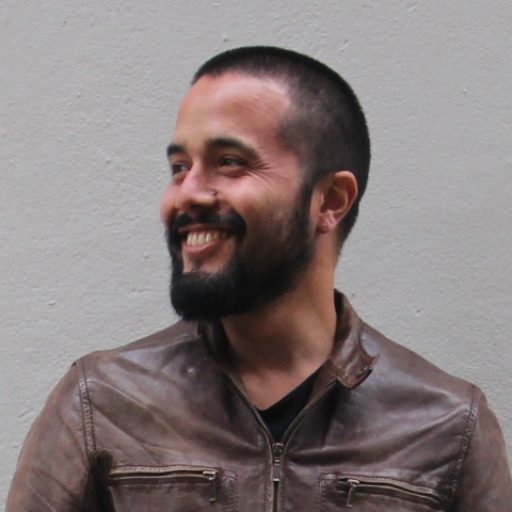
a civic space generated by a network of arts and cultural organizations (Flickr).
Arts and Culture: the next open government frontier
You probably don’t associate open government with the arts very often, but they are more connected than you think. Their relationship usually manifests itself through initiatives that recognize artists as key spokespeople, able to innovatively and creatively transmit the value and power of open government principles. However, artists and cultural workers are seldom understood as part of a larger and complex cultural sector that faces significant challenges to democratize its policies and public institutions.
Today, the arts and cultural sectors include issues like the cultural and creative industries (CCIs), cultural heritage, cultural rights, cultural diversity, freedom of artistic expression, mobility of artists, access to culture, digital transformation, and, in many countries, the wellbeing of afro-descendants and indigenous peoples.
These sectors constitute a complex political ecosystem made up of cultural organizations, federations, networks, and alliances who advocate for the democratic transformation of cultural policies. They also demand accountability and changes to the practices of ministries of culture, arts councils, and other local institutions historically characterized by their centralism, verticality, and opacity.
In the next decade, the arts and cultural sectors should be integrated into the open government agenda, explicitly and coherently. This effort should not only focus on artists and creative workers but on the broader relationship between the cultural sectors and key sustainable development issues like health, education, and peace. For the arts and cultural sectors, the open government agenda should constitute a critical opportunity to strengthen cultural diversity and advance cultural rights, generating sustainable (fair, equitable, transparent, and informed) cultural governance systems.
An open government agenda that includes the arts and cultural sectors will be able to connect with other regional and global players, including institutions like UNESCO and its 2005 Convention, which has already identified hundreds of civil society organizations that work to democratize cultural governance. Bringing these initiatives into the conversation about the future of open government is crucial to enrich and expand a global discussion on the relationship between open government and culture, bringing innovative advocacy experiences, emerging issues, and new civic languages to the forefront.
A recent study on the relationship between open data and cultural governance in Peru funded by ILDA supports this claim and underlines the transformative potential of this agenda not only at the national but also at the subnational levels: local governments are in a key position to develop pertinent and purpose-led open data agendas that can benefit local arts and cultural sectors.
The report also proposes a new OGP policy area for the arts and cultural sectors that could encourage more OGP commitments. Currently, only 0.4% (19 in total) are related to the arts and culture (with seven related to open data practices). This would also contribute to mobilizing much-needed resources to conduct new research on this topic and implement targeted training programs. A new policy area like this constitutes a new frontier for open government and an opportunity to extend its reach and impact by connecting to a rich and diverse community interested in democratizing cultural governance.

Mauricio Delfín is a cultural manager and social researcher specializing in cultural governance and civic technologies. Founder and director of Asociación Civil Solar, a non-profit organization that promotes open government principles and practices in cultural sectors. He served as technical secretary of the Peruvian Alliance of Cultural Organizations (APOC) from 2017 to 2019. Vanier Scholar (2014-2017) and OAS Open Government Fellow (2015). He is a member of the EU/UNESCO Expert Facility on the Governance of Culture for the implementation of the 2005 Convention and a doctoral candidate in Communication Studies at McGill University.